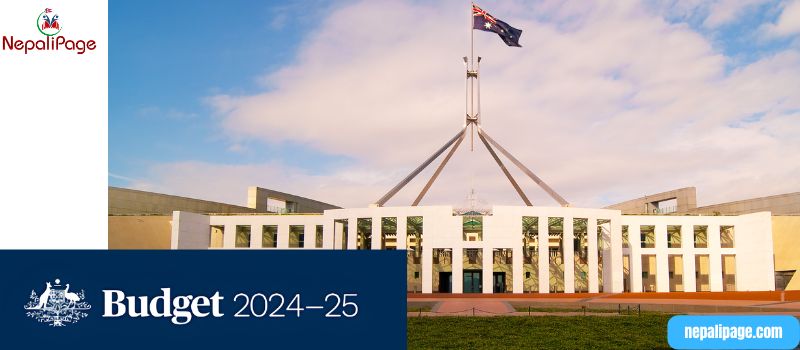Whole Nepal is divided on MCC, whether to accept an American grant or not. Most Nepali still worried about the disadvantages of MCC, which may drag Nepal into the international power wrestling arena.
Past few months, Nepalese have been extremely upset about the Millennium Challenge Corporation and its clauses. It has warmed up the citizens on the road and taken various protest measures forcing the parliament members to deny the MCC proposals. The uneasy distress of making a country like Syria has initiated turbulence. Paranoid rumours have been spread about what the MCC grant will mean for Nepal due to these feelings. Nepalese people are still worried about the disadvantages of MCC for them, in reflection of international tensions and war on Ukraine.
It appeared that the MCC grant debate was becoming more intense and heated with each day, particularly as Prime Minister Sherbahadur Deuba’s government was facing difficulties in passing the MCC contract. Though it passed by the parliament people are not in a mood to accept it as just an aid program, but a strategic power play. Proposed higher official visits from China and the USA indicates its more than a simple development aid.
In this case, it’s best to familiarize yourself with the facts, with the associated advantage and disadvantages with the Millennium Challenge Corporation for Nepal. 
What is Millennium Challenge Corporation (MCC)?
MCC is the five-year grant agreement signed between the Government of Nepal and Millennium Challenge Corporation (MCC). It’s a strict non-military contract, as MCC Act 2003, strictly prohibits funding on the Military activities.
The MCC contract ratifies economic development, helps developing countries fight poverty by providing them with innovative and independent foreign aid.
The 2017 signed MCC aid aimed to fund different on-going project sectors in Nepal such as:
- Education
- Agriculture & irrigation
- Transportation
- Water supply and sanitation
- Enterprise and financial development
- Land rights and its access
- Anti-corruptive initiatives
However, the recent signed MCC with Nepal on 2022, aims to provide grant of 500 million USD in which the entire amount is assumed to be utilized for the Energy sector i.e. the construction of submission lines with substations.
So far 46 countries have signed MCC amongst which Nepal recently signed the contract on 2022, February 27, while the implementation process of MCC is on-going on the listed countries below:
| Country | Program | Project status | Contract amount | Signing date |
| Benin (Africa) | Power compact | Implementation | $391,000,000
|
2015, September 9 |
| Burkina Faso (Africa) | Compact II | Signed | $450,000,000
|
2020, August 13 |
| Côte d’Ivoire Compact
|
Compact | Implementation | $524,740,000
|
2017, November 7 |
| Ghana | Power compact | Implementation | $315,851,395
|
2014, August 6 |
| Kosovo | Threshold Program |
Implementation |
$49,000,000
|
2017, September 12 |
| Mongolia | Water compact | Implementation | $350,000,000
|
2018, July 27 |
| Morocco | Employability and land compact | Implementation | $450,000,000
|
2015, November 15 |
| Niger | Compact | Implementation | $437,024,000
|
2016, July 29 |
| Senegal | Power compact | Implementation | $550,000,000
|
2018, December 10 |
| Solomon Island | Threshold program | Implementation | $20,000,000
|
2022, January 22 |
| The Gambia | Threshold program | Implementation | $25,000,000
|
2021, November 16 |
| Togo | Threshold program | Implementation | $35,000,000
|
2019, February 19 |
Read Also: Gaming Laptop from Nepali Brand: Ripple Artifact Pro
What is the effect of MCC in Nepal when the contract is signed?
MCC does assume to have a positive effect on the Nepalese economy. It targets infrastructure development, which ensures to create jobs and promote growth. It also states that every contract or project signed by MCC will be executed by the Nepalese, aiming to create a better future by encouraging policy and institutional reforms.
Grant funding of $500 million will be used to establish a 400KV power transmission line on the Lapsiphedi-Galchhi-Damauli-Sunawal corridor. Furthermore, 3 substations will also be built-in Rupandhei connected to the Nepal-India cross-border power transmission line. In addition to maintenance of the East-West Highway, USD 130 million will also be spent.
What is the projected completion date for Nepal after signing MCC?
The implementation of the agreements must take place within five years of their entry into force, and extra funding is not available. So, we can assume that within 5 years the projects must be completed.
Is MCC likely to change Nepal’s non-alliance policy?
No. There is no requirement that Nepal to join any alliance under the MCC Compact. Only economic growth and poverty reduction are the goals of the Compact.
Are MCC employees exempt from local laws?
An MCC employee is immune from legal action in Nepal’s courts and tribunals only if the claim or loss arises from activities under the Compact. It does not apply to non-project activities. Nepali diplomats serving abroad benefit from this immunity in diplomatic relationships.
Is it possible for the National Assembly to ratify the MCC Nepal Compact?
Not at all. Having been suggested by the Ministry of Law, Justice and Parliamentary Affairs, the agreement must be ratified by the House of Representatives by a simple majority. MCC Nepal cannot implement its Compact without such approval. The GoN also proposed ratification by the House of Representatives of the Federal Parliament to accord it the status of an international agreement according to international law, which is another reason why the GoN proposed ratification by the House of Representatives.
What are the associated advantages of Signing MCC by Nepal?
Despite the projects under MCC will be supervised under the MCC channels, Nepal do have the following advantages:
- The government has the authority to use the grant in their own terms (project)
- Nepal government has the power to screen the manpower engaged in the project, therefore both national and international consultants are allowed to enroll in the project.
- Nepal government can perform audit of the project, they have right to access the Information request.
- No military aspects revolve in the contract. MCC is just an innovative contract to assist the under-developed countries to strengthen the education, health, transportation, and energy sector.
What are the associated disadvantages of MCC to Nepal?
Nepalese are worried more about the disadvantages of MCC, this may drag the Himalayan country into the power play of China and the USA. Though the overall MCC contract in inclined towards the development aspect it still holds a few grudges that were refrained by the Nepalese citizens.
- The MCC contract is above the Nepalese law.
- There is an unclarity between the MCC contract and its relation between the indo-pacific strategy (the indo-pacific strategy calls for a link between security, governance, and economics, but does not mention military alliances.)
- This agreement could create power play between the China and US, giving huge pain to Nepalese state and people.











